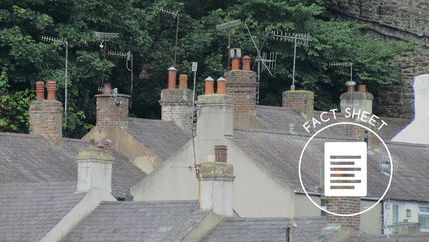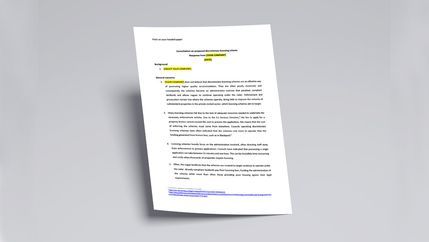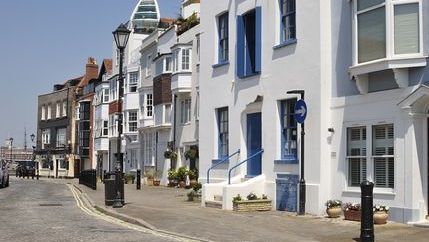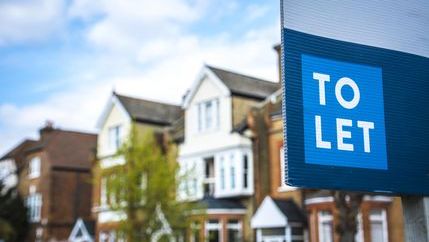What is Selective Licensing?
The Housing Act 2004 allows local authorities to apply for Selective Licensing of privately rented properties in areas which are experiencing low housing demand and/or suffering from anti-social behaviour.
Selective Licensing in Wales
The Welsh Assembly exercised its powers under the Act to determine additional ‘conditions’ for designating an area. For instance, the regulations allow local housing authorities in Wales to apply for Selective Licensing designation where a district, or an area in their district, comprises a minimum of 25 per cent of housing stock let by a private sector landlord.
Additional licensing
The Housing Act 2004 introduced licensing for Houses in Multiple Occupation (HMOs). Under the law, there are different types of HMO licensing as outlined below.
Mandatory licensing (England)
From 1 October 2018, any landlord who lets a property to five or more people from two or more separate households must be licensed by their local authority.
Large HMOs (Wales)
A property with three or more storeys and at least five occupants who do not form a single household must be licensed.
Additional licensing (England and Wales)
This is when a local authority can impose a licence on other categories of HMOs in its area which are not subject to mandatory licensing.
Fact sheets for members
Fact sheet: Selective Licensing (England)
The Housing Act 2004 allows local authorities to apply for Selective Licensing of privately rented properties in areas which are experiencing low housing demand and/or suffering from anti-social behaviour.
Fact sheet: Selective Licensing (Wales)
The Housing Act 2004 allows local authorities in England and Wales to apply for Selective Licensing of privately rented properties in areas which are experiencing low housing demand and/or suffering from anti-social behaviour.
Fact sheet: Additional Licensing
The Housing Act 2004 introduced licensing for Houses in Multiple Occupation (HMOs). Additional licensing is when a local authority can impose a licence on other categories of HMOs in its area which are not subject to mandatory licensing.
Fact sheet: Licensing of Houses in Multiple Occupation
In May 2015, the UK Government announced that they would extend mandatory licensing of Houses in Multiple Occupation (HMOs) to address poor conditions and overcrowding.
Covid-19 update
The UK Government are encouraging local authorities to take a common-sense, pragmatic approach to landlord licensing enforcement during these unprecedented times.
The guidance also states that where local authorities are in the process of introducing selective or additional Houses in Multiple Occupation (HMO) licensing schemes, but these are not yet in force, they should continue to take a pragmatic approach. Furthermore, local authorities may need to be prepared to pause the process completely where it is not safe and reasonable to continue, or if it conflicts with the latest Government advice on the Covid-19 outbreak.
Representing our members
The need for local authorities to postpone the introduction of all licensing schemes until the market can recover from the impacts of Covid-19 formed a key part of our written submissions to the Housing, Communities and Local Government Committee Inquiries into the impact of Covid-19 (Coronavirus) on homelessness and the private rented sector.
Our evidence stated that the continued requirement for landlord licensing applications to be submitted and fees paid places additional pressure on the sector in the following ways:
- The cost of licensing may be passed on to tenants via rent increases.
- Landlords who cannot afford the license fee may decide not to pay the licensing fees and remove their property from market, forcing tenants to seek new homes, placing people at risk and spreading rather than stemming the pandemic.
- With little or no rents being paid on some properties, not all landlords are able to fund new license fees, leaving them with the choice of criminal liability, or evicting their tenants.
- With many agents furloughed or working from home they are unable to access relevant paperwork and documentation to complete licensing scheme applications and process fees.
- Agents are facing problems getting routine maintenance and safety checks at the properties they manage completed. This is because there is a shortage of engineers willing to carry out routine work and most tenants do not want to permit access to strangers even when it is an emergency. Without evidence that routine checks have been successfully completed agents and landlords would be submitting incomplete applications.
We believe councils who are pursuing the implementation of licensing schemes are being socially irresponsible as it needlessly puts vulnerable people at risk of being infected. In this unprecedented situation, landlords and agents are not able to comply with the requirements of the scheme and council resources are unlikely to be able to effectively enforce them.
Inquiry into the impact of COVID-19 (Coronavirus) on homelessness and the private rented sector
ARLA Propertymark has responded to the UK Parliament’s Housing, Communities and Local Government Committee’s (HCLG) Inquiry into the impact of Coronavirus on homelessness and the private rented sector.
Our concerns with landlord licensing
Lack of resources
Many licensing schemes fail due to the lack of adequate resources needed to undertake the necessary enforcement activity. Due to the EU Services Directive, the fee to apply for a licence cannot exceed the cost to process the application, meaning that the cost of enforcing the schemes must come from elsewhere. Councils operating licensing schemes have often indicated that the schemes cost more to operate than the funding they receive from licence fees.
Administrative exercise
Licensing schemes focus heavily on the administration involved, often directing staff away from enforcement to process applications. Councils have indicated that processing a single application can take between 15–60 minutes. This can be incredibly time consuming and costly when thousands of properties require licensing.
Penalising compliant landlords and agents
Rogue landlords and agents that the schemes are created to target often continue to operate under the radar. Landlords and agents who are already compliant, pay their licensing fees and fund the administration of the scheme whilst those providing poor housing regularly ignore their legal requirements.
The low number of prosecutions
The Housing and Planning Act 2016 allows civil penalty fines levied for offences in the private rented sector to be retained by the Local Authority for further enforcement. Research conducted in April 2018 by the Housing, Communities and Local Government Committee highlighted that overall local authorities rarely issue landlords and agents with penalties. Existing licensing schemes have demonstrated that only a small number of prosecutions occur. In 2016/17, 50 per cent of all prosecutions (out of 33 boroughs with licensing across England) came from Newham Borough Council.
Licensing consultation template.docx
Is a discretionary licensing scheme being consulted on in your area? Edit and submit our Word template to your local authority.
Collaborative approach needed
We believe that local authorities should adopt a collaborative approach with letting agents, landlords, professional bodies and public services to tackle issues within the private rented sector.
This approach recognises and rewards landlords and letting agents who already adhere to good practice and enables local authorities to better target their resources on effective intelligence-led enforcement.
Homestamp is a collaborative approach in the West Midlands which we partner. The initiative combines local authorities, private rented sector bodies, universities, the police and fire services. Homestamp considers regional and national issues affecting the sector alongside providing information and training for landlords, addressing potential issues before they arise. Coincidentally, the West Midlands has the lowest level of licensing in England.
Until March 2020 ARLA Propertymark had a co-regulation partnership with Liverpool City Council. The scheme allowed the council to effectively target their resources and rewarded our members who already adhere to high standards. Landlords who opted to use our members also received a discount incentive on licensing fees.
The London Rental Standard ran from 2014 to 2017, we were appointed as one of the accrediting bodies to the scheme by the former London Mayor. The voluntary set of minimum rules separated out agents and landlords performing their duties to a high professional standard, allowing scarce local authority resources to be directed towards inadequate landlords and letting agents.
Is your local authority continuing with the implementation of a new licensing scheme?
Contact us at [email protected] with your concerns and we will lobby them to pause the introduction of the scheme while the Coronavirus pandemic continues.
Related news and resources
Renters Reform returning to Parliament in a storm of criticism
The Leader of the House of Commons has confirmed the remaining stages of the Renters (Reform) Bill will take place on Wednesday 24 April 2024 with some key changes to the Bill brought forward. Whilst the UK Government has listened and reacted to some industry concerns, another chance has been wasted to effectively regulate property agents.
Compulsory registration will enable short-term lets to demonstrate quality
Plans for statutory registration and licensing for all visitor accommodation in Wales have been announced with legislation expected to be introduced before the end of the year to address the negative impact second homes and short-term holiday lets have on the availability and affordability of housing for local people.
Student landlord hit by £43,000 in licensing fees
Middlesborough Council who issued the charges has defended it by saying each of the 52 flats in Linthorpe Hall 248 are eligible for the fee under their current selective licensing scheme, which began in 2019.
Agency fined for managing an unlicensed property
A property management and letting agency in Enfield received a £7,500 fine and was ordered to pay £1,299 in costs with an additional £2,000 victim surcharge (a total of £10,799), during a recent sentencing hearing at Highbury Corner Magistrates Court.
No tolerance for HMO failings with huge fines issued
Two separate investigations in Camden and Mansfield involving unlicensed Houses of Multiple Occupation (HMOs) led to sanctions for landlords and agents. West Northamptonshire is the latest council to announce a crackdown on unregulated and poorly managed properties.
Licensing schemes and local authority enforcement concerns
Responding to consultations across England, Propertymark is concerned that licensing schemes are not the best tool to drive up standards in the private rented sector (PRS), particularly during difficult financial times.












